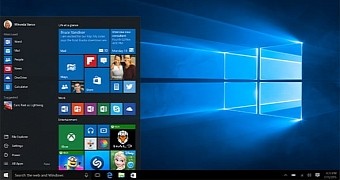Microsoft launched the Windows 10 Creators Update a couple of days ago and the company can proceed to pull support for the original version of the operating system launched in July 2015.
The software giant has announced today that Windows 10 version 1507 would no longer receive security and quality updates after May 9, which is the next month’s Patch Tuesday cycle.
Computers running Windows 10 Enterprise 2015 LTSB and Windows 10 IoT Enterprise 2015 LTSB will continue getting updates, though, as per the company’s policy for this branch.
Microsoft explains in a statement that the end of support for the original version of Windows 10 is needed because it already rolled out two major updates for the operating system, namely the Anniversary Update and the Creators Update.
Upgrade as soon as possible
Users are recommended to upgrade to one of these versions (the Creators Update is obviously the preferred choice because it’s the newest release) to continue receiving updates and security patches.
“Since the initial release of Windows 10 in July 2015, Microsoft has released two additional feature updates that build upon each other, delivering the newest features and more comprehensive security. Windows 10 was designed as a service, whereby feature updates are required a few times a year,” Microsoft says.
“For most consumers, both quality and feature updates are delivered automatically according to their Windows Update settings. By policy, devices need to install the latest feature update within a 60-day grace period of its release to continue to be eligible for monthly servicing with security updates and other quality updates. We extended this grace period for version 1507 beyond this typical 60-day policy, but the time has now come to end servicing for version 1507.”
Computers still running the original Windows 10 version will continue working just like before, but no security patches and quality updates means users would become vulnerable to any exploits trying to take advantage of unpatched vulnerabilities.
This is the case with the other operating systems not getting support anymore as well, such as Windows XP, which is still running on some 8 percent of the world’s PCs.

 14 DAY TRIAL //
14 DAY TRIAL //